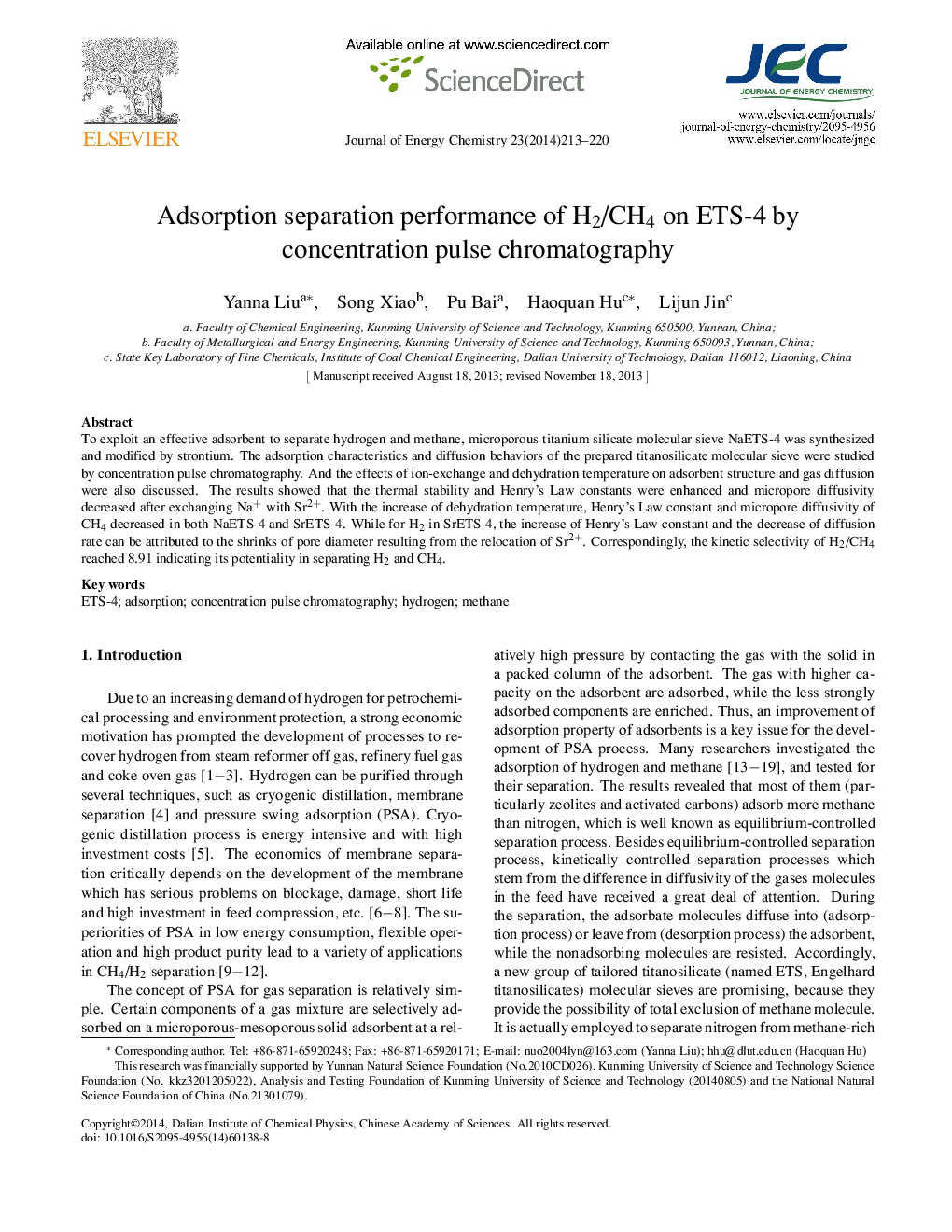| Article ID | Journal | Published Year | Pages | File Type |
|---|---|---|---|---|
| 63816 | Journal of Energy Chemistry | 2014 | 8 Pages |
To exploit an effective adsorbent to separate hydrogen and methane, microporous titanium silicate molecular sieve NaETS-4 was synthesized and modified by strontium. The adsorption characteristics and diffusion behaviors of the prepared titanosilicate molecular sieve were studied by concentration pulse chromatography. And the effects of ion-exchange and dehydration temperature on adsorbent structure and gas diffusion were also discussed. The results showed that the thermal stability and Henry's Law constants were enhanced and micropore diffusivity decreased after exchanging Na+ with Sr2+. With the increase of dehydration temperature, Henry's Law constant and micropore diffusivity of CH4 decreased in both NaETS-4 and SrETS-4. While for H2 in SrETS-4, the increase of Henry's Law constant and the decrease of diffusion rate can be attributed to the shrinks of pore diameter resulting from the relocation of Sr2+. Correspondingly, the kinetic selectivity of H2/CH4 reached 8.91 indicating its potentiality in separating H2 and CH4.
Graphical AbstractThe performance of dehydrated ETS-4 to separate H2 and CH4 was operated by concentration pulse chromatography. Ion exchange and dehydration resulted in the pore contraction and followed “molecule gate” effect which played an important role in the diffusion.Figure optionsDownload full-size imageDownload as PowerPoint slide
